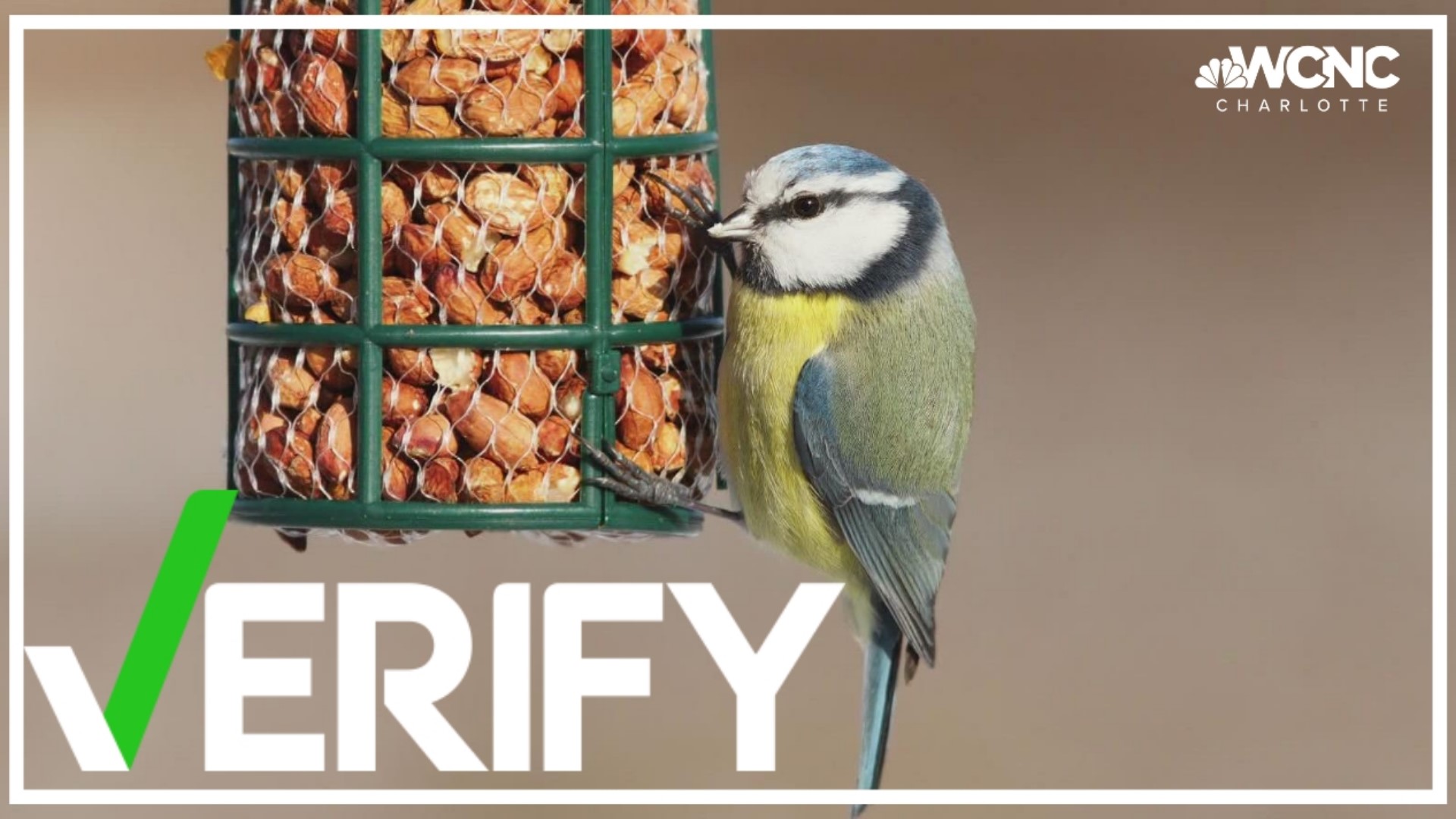CHARLOTTE, N.C. — Bird flu is spreading across the United States, and has been detected in North Carolina.
A strain of bird flu that's very contagious and deadly for chickens is spreading through some United States poultry flocks. The infected include backyard birds, commercial poultry, pet chickens and wild birds in captivity.
When WCNC Charlotte first reported the disease doesn't pose a risk to humans who eat poultry, it prompted more questions.
One viewer asked if the wild bird feeders in her yard would be safe to handle.
THE QUESTION
Can you get infected with bird flu while handling wild bird feeders?
THE SOURCES
Dr. Michael Martin, State Veterinarian for the North Carolina Department of Agriculture & Consumer Services
THE ANSWER
No, you can't get infected with bird flu while handling wild bird feeders. The disease poses very little risk to humans.
WHAT WE FOUND
The CDC said infections only occur when people come into close contact with sick birds. Martin said he hasn't seen any evidence of the virus affecting people at all.
For those with bird feeders, Martin recommends taking precautions in general.
"So it's always good to kind of wash up after using and working with your bird feeder just as a general practice but there's nothing right now that's a heightened need for doing that because of avian influenza," Martin said.
He also said if you have backyard chickens or pet birds, keep bird feeders away.
"Just because those wild birds may have diseases like avian influenza or other diseases that could actually cause problems with your own domestic chickens," Martin said. "So it's always just kind of a good idea to try to keep diseases from your birds that you're taking care of."
VERIFY is dedicated to helping the public distinguish between true and false information. The VERIFY team, with help from questions submitted by the audience, tracks the spread of stories or claims that need clarification or correction. Have something you want VERIFIED? Text us at 704-329-3600 or visit /verify.

